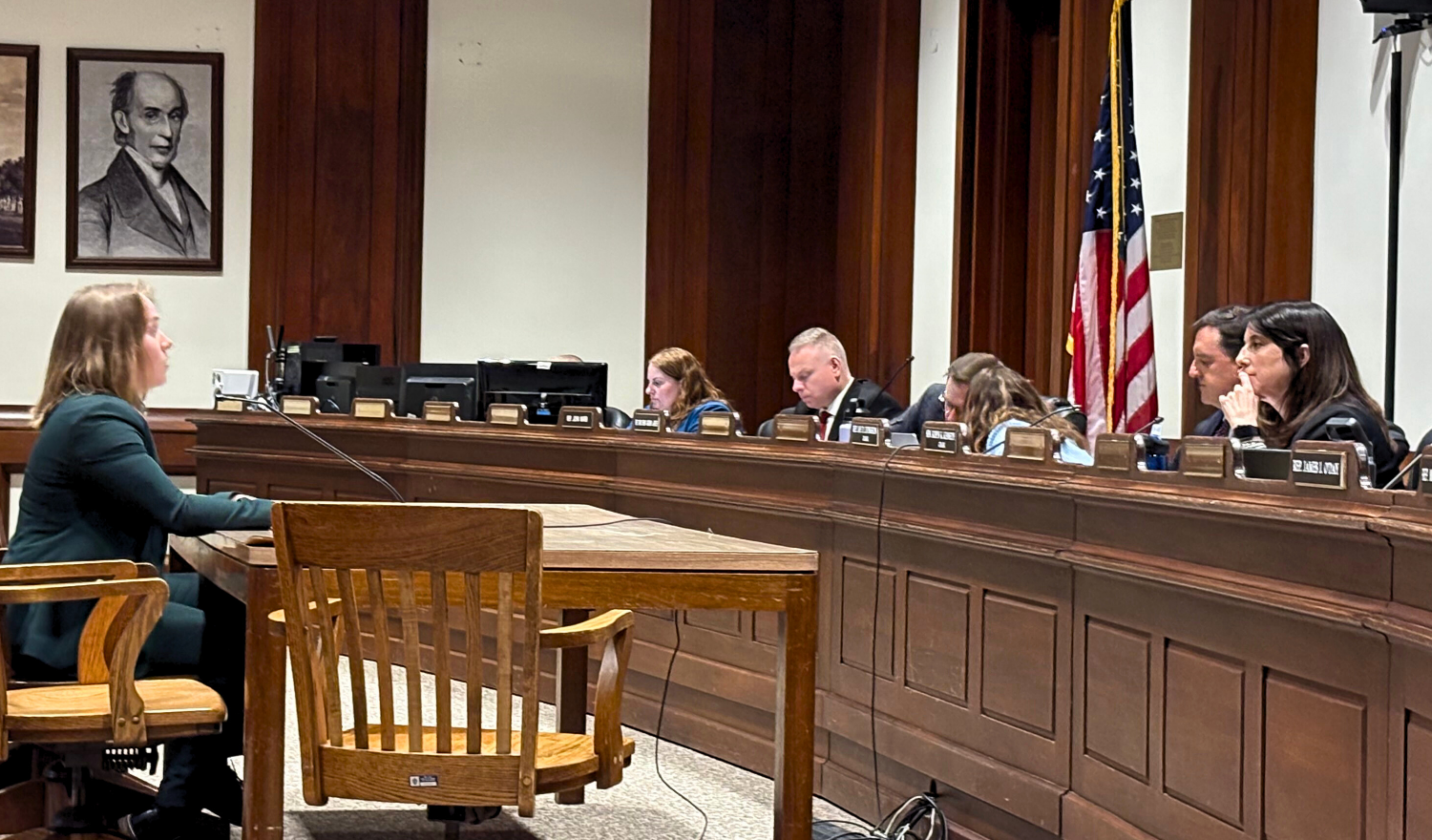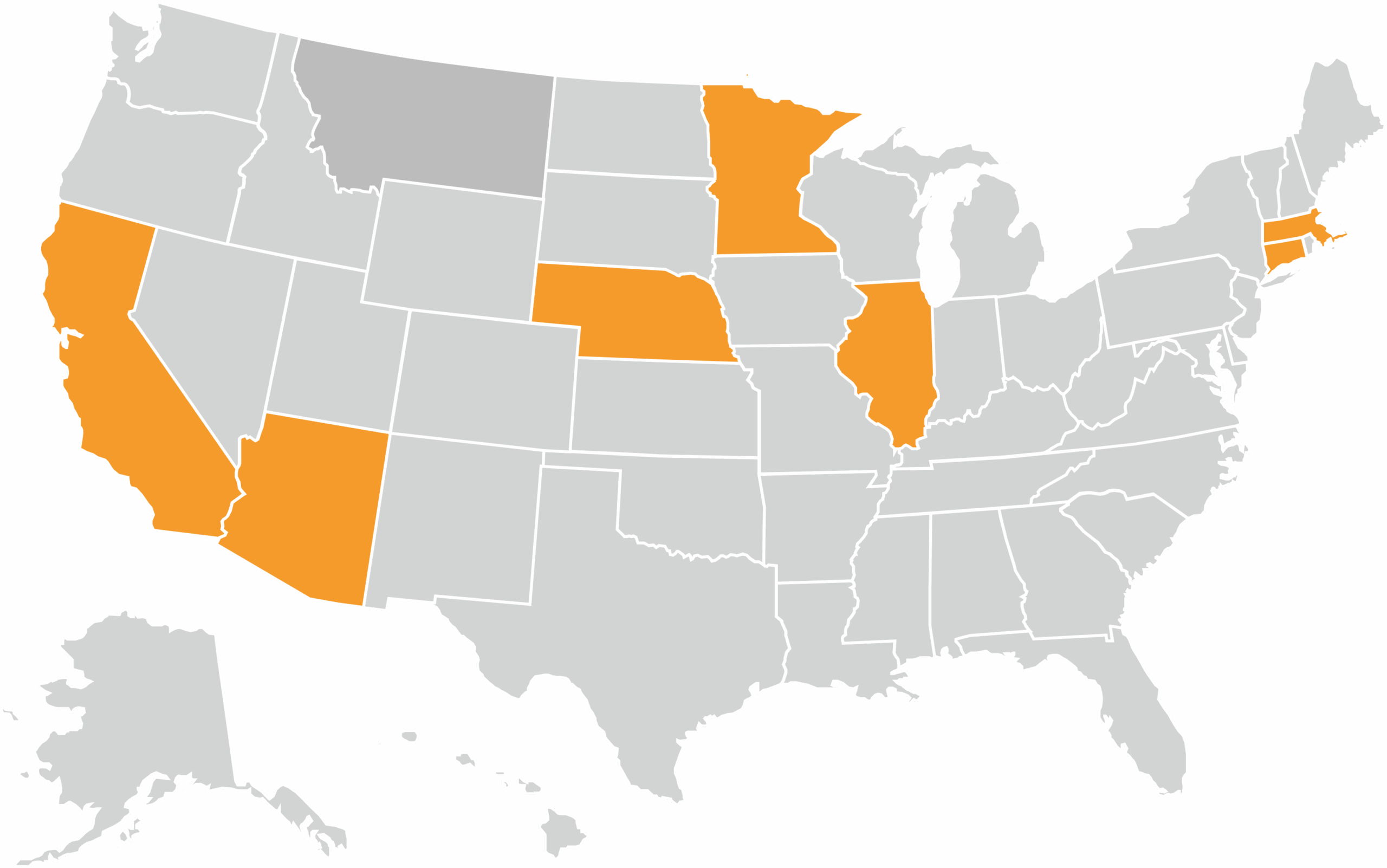HopeWell’s Advocacy: New Massachusetts Law Ensuring Youth in Foster Care Receive Full Social Security Benefits They’re Owed

Cat Quirion, Associate Director of Policy & Advocacy, testifies to members of the Massachusetts legislature
AN ONGOING PROBLEM
Social Security Benefits for Youth in Foster Care Seized
For many years, youth in foster care who were eligible for Social Security benefits due to a disability or the death of a parent never saw the money they were owed.
Until recently, 90% of these benefits were diverted by the Massachusetts Department of Children and Families (DCF) into the Massachusetts General Fund, leaving only 10% of the benefits accessible to the youth they belonged to. Most often, this transfer happened without the child or family knowing.
At HopeWell, we were dismayed by this practice: At an average of $700+ per month, Social Security benefits can go a long way in improving the experiences children and teens have while in foster care, as well as their longer-term outcomes as they transition into young adulthood, including access to housing, healthcare, and higher education opportunities.
5-10% OF CHILDREN
in foster care in the U.S. are entitled to Social Security benefits
1,250+ CHILDREN
in Massachusetts were having their Social Security benefits taken each year
~$5.5 MILLION
was collected each year from children in foster care in Massachusetts
A Call to Safeguard Social Security Benefits
For the past several years, HopeWell collaborated with the Disability Law Center and child welfare advocates across the Commonwealth to permanently put an end to DCF’s practice of diverting these funds and to ensure youth receive the benefits they are owed.
Our advocacy in Massachusetts complemented similar efforts across the country. The issue began to experience a tipping point in April 2021, when NPR and the Marshall Project released an investigative news story revealing that at least 49 states and Washington D.C. had all been taking Social Security benefits from children in foster care. Across the country, advocacy campaigns and media coverage helped fuel a groundswell of calls for state child welfare agencies to change their practices.

In 2021, at least 49* states and Washington D.C. all followed the practice of taking Social Security benefits from children in foster care.
Since then, many states have moved to cease this practice. In July 2023, Arizona became the first state to pass legislation outlawing it.
*Montana did not respond to The Marshall Project’s requests for information.
A Legislative Solution in Massachusetts
JANUARY 2024
As a result of intense pressure from child welfare advocates, DCF announced it would stop taking Social Security benefits from children and teens in their care.
JUNE 2024
DCF began setting up special savings accounts — Achieving a Better Life Experience (ABLE) — to conserve funds for each eligible child.
We were thrilled that DCF chose to end this harmful practice, but remained concerned the agency might revert to old practices, especially if we experience economic downturn or uncertainty. (The diversion of funds across the nation began during the Great Recession.) Therefore, we believed the path to permanently ending this practice needed to be through legislation, and our coalition supported efforts to make it happen.
Senator Joanne Comerford (Hampshire, Franklin, Worcester District) and Representative Tricia Farley-Bouvier (2nd Berkshire District) crafted the details of H.227/S.105 – An Act Protecting Benefits Owed to Foster Children, a bill codifying the changes into law and ensuring DCF can never return to taking Social Security benefits away from young people experiencing foster care.
The bill also included provisions for making financial literacy resources available for youth — a valuable step toward ensuring they have the tools to manage their benefits in ways that meet their needs, especially as they launch into adulthood.
EARLY MAY 2025
HopeWell testified on Beacon Hill in support of the bill and the Massachusetts coalition came out in full force for the hearing.
LATE MAY 2025
HOPEWELL'S TESTIMONY
In addition to submitting written testimony, HopeWell testified in-person to the Joint Committee on Children, Families, and Persons with Disabilities. Associate Director of Policy & Advocacy, Cat Quirion, used the three minutes she was allotted to stress the urgency of passing the bill, especially given the current fiscal climate.
"We must ensure that no matter what happens in the coming months or years, we will never again take benefits away from children and youth experiencing foster care in an effort to balance the state budget."
-Cat Quirion, Associate Director of Policy & Advocacy
CELEBRATING BIG WINS
Passing of New Law Will Protect Social Security Benefits for Massachusetts Youth Experiencing Foster Care
What does the new law mean for children and youth in foster care?
- First and foremost, this bill being signed into law means that DCF cannot go back to their practice of taking Social Security benefits from children and teens in foster care. No matter what happens with future state budgets or financial downturns, eligible youth experiencing foster care are guaranteed full access to their Social Security benefits.
- DCF must now screen every child that enters foster care for Social Security eligibility and support them in accessing the full benefits they're entitled to.
- DCF must establish ABLE savings accounts for all eligible children and youth, so their unused funds are conserved without jeopardizing continued access to benefits or interfering with federal asset limits.
- The new law aims to improve communication and information-sharing between DCF and youth, including mandating DCF to maintain detailed accounting of each child's benefits and making this information readily-available to the child's attorney.
- Lastly, this new law mandates DCF to provide financial literacy tools and resources for all eligible youth and the relevant adults in their lives, supporting youth's ability to manage and maximize their benefits both while they are in foster care and as they transition into adulthood.
Our Testimony
Our testimony begins around the 8-minute mark.
Additional Sources
The Marshall Project. Meet Malerie, Tristen, Katrina, Alex, Ethan, and Mateo.
The Marshall Project. Decades After Leaving Foster Care, She Learned She Was Owed Benefits. Where Did The Money Go?
NPR. State Foster Care Agencies Take Millions of Dollars Owed to Children In Their Care.
The Imprint. A Growing Number of States Vow to Stop Seizing Benefits Owed to Foster Youth.
Disability Law Center. DLC Report Exposes Practice of Diverting Millions Annually of SSA Benefits from Vulnerable Foster Youth in Massachusetts.